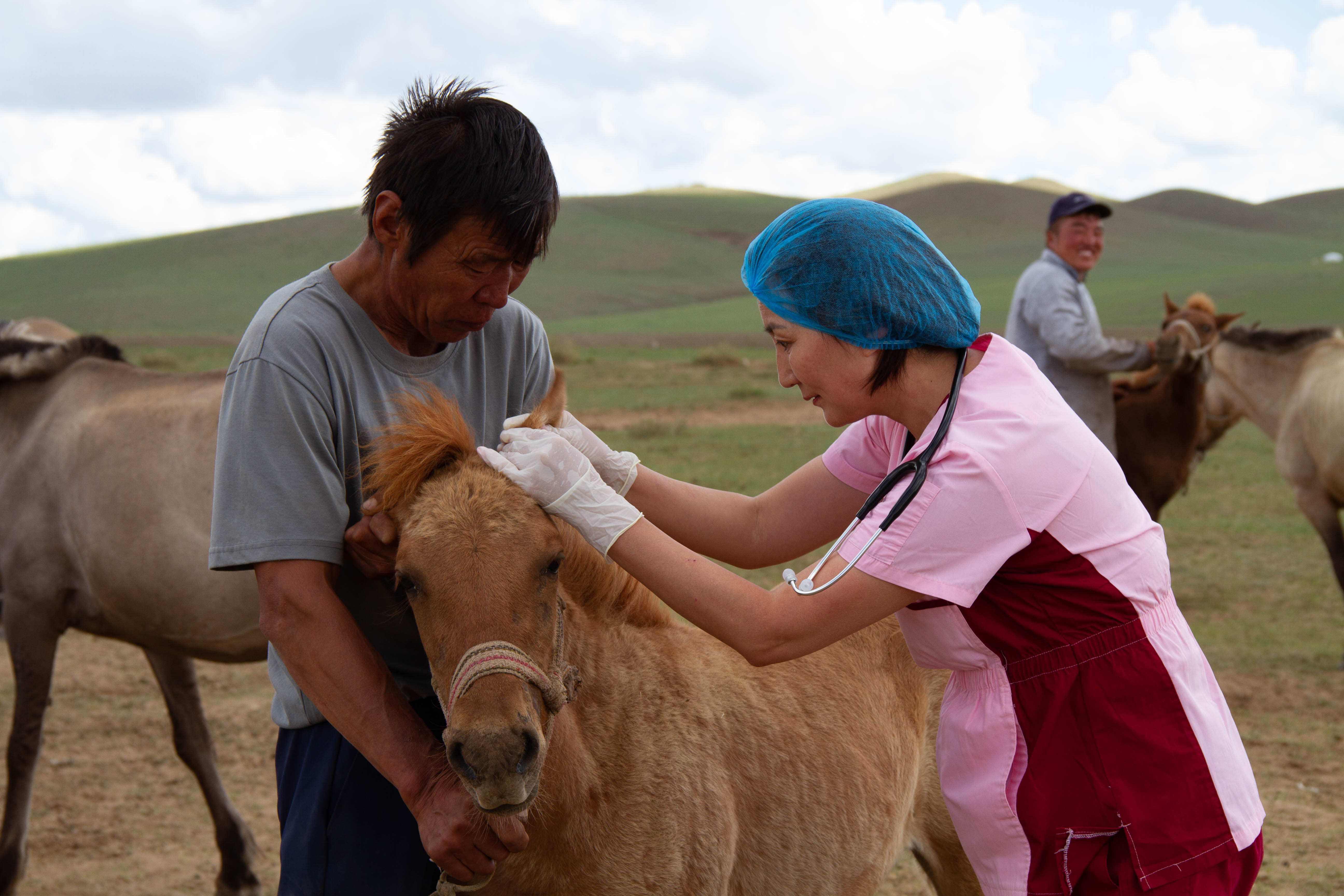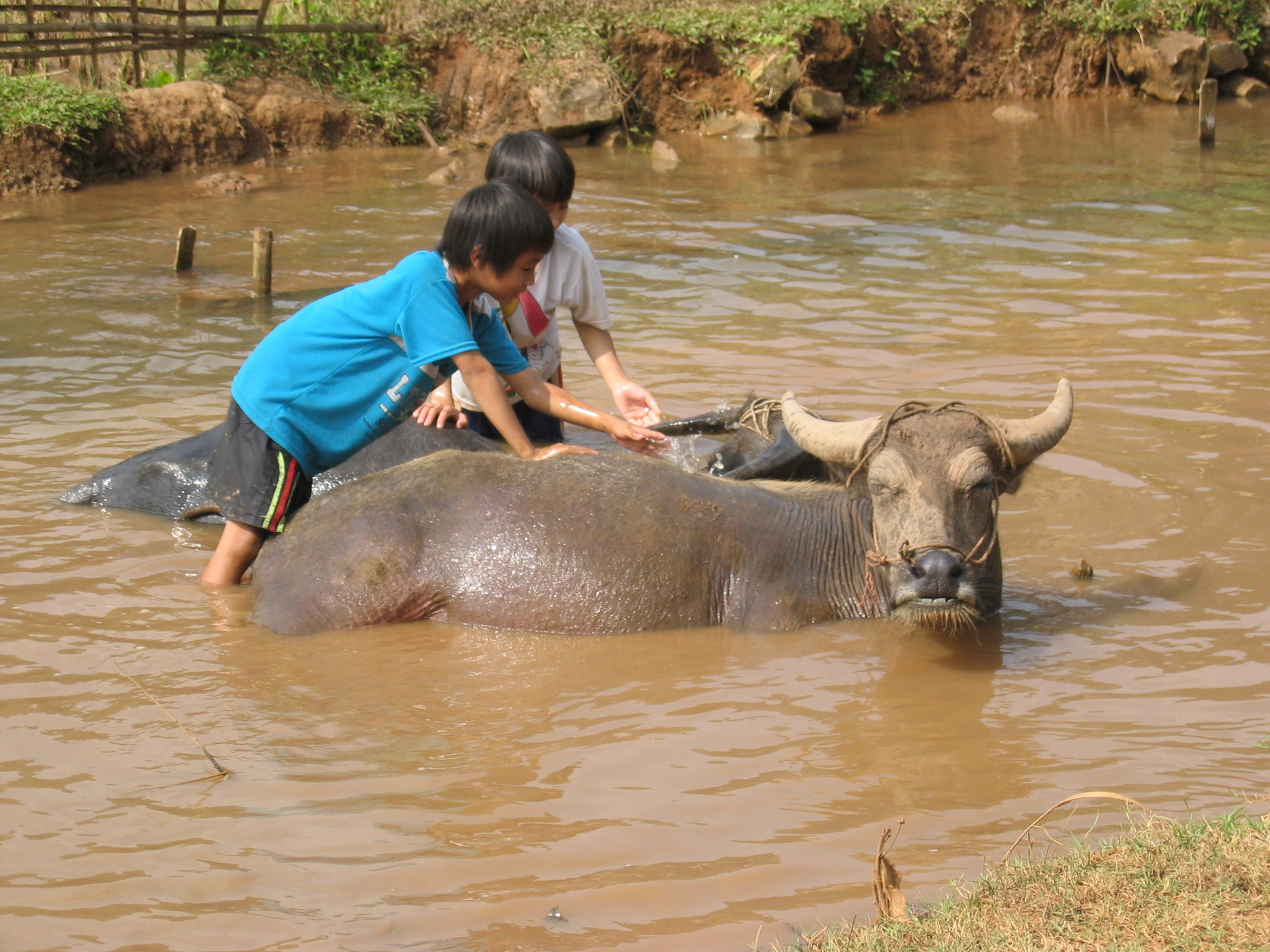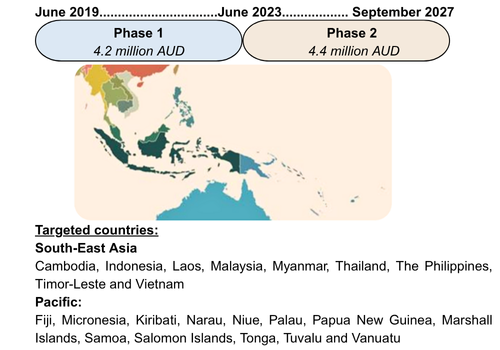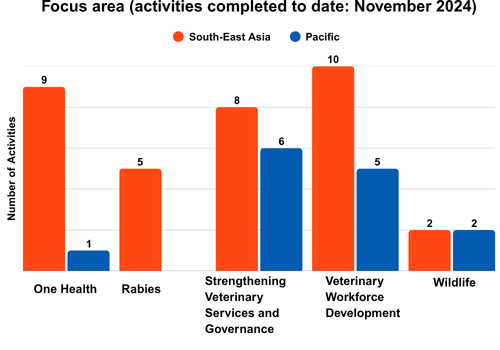
The COVID-19 pandemic and emergences of other zoonotic diseases in recent years highlight how human impact on the environment can adversely affect the health of people, animals, and ecosystems. In response to events like this, One Health has become a growing priority in the Asia-Pacific region—where many emerging diseases like SARS and highly pathogenic Avian Influenza have originated. However, limited veterinary capacity can undermine efforts to address these disease risks at their source and with most emerging diseases stemming from animals, strengthening Veterinary Services is essential to building resilient health systems.
Summary of One Health Partnership
The Australia-WOAH One Health Partnership (OHP) is a project funded by the Australian Government and implemented by WOAH. The OHP aims to strengthen Veterinary Services to boost health security through a One Health approach to infectious disease prevention and response. Activities undertaken in this project include Performance of Veterinary Services (PVS) Pathway activities, International Health Regulations (IHR)-PVS National Bridging Workshops (NBW), targeted support for Rabies Control and wildlife health as well as various activities related to veterinary workforce development.
The purpose of this independent review was to provide an analysis of the results, achievements, and challenges of OHP to date and to provide recommendations for the ongoing implementation of Phase 2. Data collection for this review was conducted via document review and key stakeholder interviews. The review limitations included a short timeframe to assess full impacts of activities in the long-term.
Summary of One Health Partnership activities
The OHP provides a good platform for WOAH and targeted countries in South-East Asia and the Pacific (including WOAH Members and non-Members) to collaborate in strengthening Veterinary Services. The diversity of activities undertaken reflects the varied needs of participating countries, showcasing the Partnership’s adaptability and responsiveness. The review found OHP to be well-aligned with regional priorities, with strong relevance and coherence across its activities. WOAH’s collaboration with key actors such as The Pacific Community (SPC) along with its strong relationships with national governments, helped drive efficient implementation. Operationally, WOAH demonstrated agility and responsiveness, particularly in applying recommendations from the Mid-Term Review conducted in 2022 and navigating the challenges of the COVID-19 pandemic.
However, the review has also identified areas which require further attention. Many activities have not yet translated into measurable change, and long-term outcomes remain uncertain. The Gender Equality, Disability, and Social Inclusion (GEDSI) component has made important progress in identifying barriers to inclusion, like unjustified scepticism for Female animal health professionals to handle large animals, but further efforts are needed to translate these insights into changes in processes and practices. Improved monitoring, making clearer linkages between activities and outcomes, and greater follow-up support to countries will also be essential to ensure sustained results and impact as the Phase 2 of the OHP continues.
The review makes the following recommendations for Phase 2 of the OHP:
The OHP reflects growing international recognition of the need for integrated approaches to health that span human, animal, and environmental systems. Operating in South-East Asia and the Pacific—regions with significant exposure to zoonotic and transboundary disease threats—the project contributes to broader global efforts to operationalize One Health. Its focus on strengthening veterinary services and addressing issues like rabies and wildlife health situates it within the global health security agenda to build more resilient and coordinated health systems. Country ownership and WOAH’s well-established relationships have been key enablers of the OHP to date, and sustaining this collaboration will be essential to achieving long-term impact and meaningful One Health outcomes.
WOAH would like to thank the Department of Foreign Affairs and Trade (DFAT), Australia, for its continuous support in implementing this project and the Nossal Institute for Global Health in conducting this specific review.
If you are interested in reading the full report, please contact Stéphane Renaudin ([email protected]) and Maho Urabe ([email protected]).




